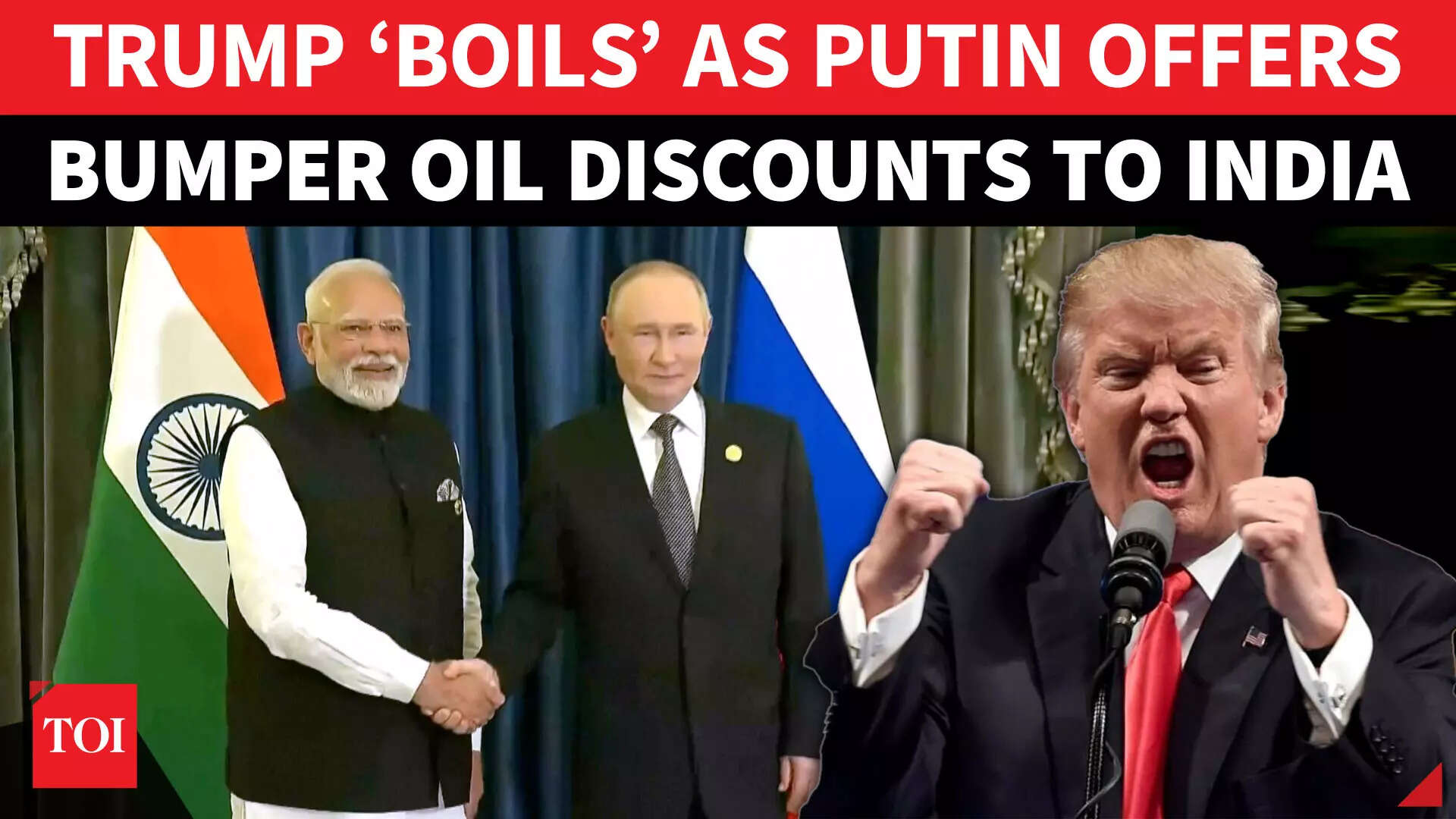Top Stories
India Secures Deep Discounts on Russian Oil Amid U.S. Tariffs

India has secured significant discounts on Ural crude oil from Russia, following the recent Shanghai Cooperation Organization (SCO) Summit. This move comes as the United States intensifies trade pressures by imposing a hefty 50% tariff on various Indian goods. The development illustrates India’s escalating energy partnership with Russia, all while it navigates increasing tensions with Washington over its oil imports.
The backdrop of these negotiations was highlighted during the SCO Summit, where leaders discussed economic collaboration and security issues. Indian officials have reportedly welcomed the deeper discounts offered by Russia, which could provide substantial savings in a time of fluctuating global oil prices. This arrangement might also help India mitigate the impact of U.S. tariffs, which are designed to discourage trade with nations that the U.S. views unfavorably.
India’s oil imports from Russia have surged in recent months, making it a key player in global energy dynamics. The country has increasingly turned to Russian oil as a cost-effective option, especially in light of the soaring prices due to geopolitical tensions. According to industry sources, the current discount on Ural crude oil is expected to significantly bolster India’s energy security and economic stability.
Strategic Energy Ties
India has been seeking to diversify its energy sources amid rising global demand. The country’s dependence on oil imports makes it vulnerable to price fluctuations and geopolitical instability. By strengthening ties with Russia, India aims to secure a more stable and affordable supply of oil.
The U.S. tariffs, implemented by President Donald Trump‘s administration, have raised concerns among Indian policymakers. The tariffs are part of a broader strategy to counteract nations that engage in practices considered detrimental to U.S. economic interests. As a result, India is navigating a complex landscape, balancing its relationship with both Russia and the United States.
Analysts suggest that India’s deepening ties with Russia could provoke further tensions with Washington. The U.S. has been vocal about its discontent regarding countries that continue to engage in trade with Russia, especially in the energy sector. Despite these pressures, India’s government appears committed to securing favorable terms for its oil imports.
Implications for Global Oil Markets
The ramifications of this agreement extend beyond bilateral relations, potentially impacting global oil markets. As India continues to import Russian oil at discounted rates, other nations may reassess their energy strategies in response to shifting alliances. The competition for oil resources is expected to intensify, influencing pricing structures and supply chains worldwide.
India’s move also underscores the complexities of international trade in an era marked by economic sanctions and geopolitical maneuvering. While the U.S. seeks to isolate Russia economically, India is opting for a pragmatic approach, prioritizing its energy needs over diplomatic pressures.
In conclusion, India’s ability to secure discounted oil from Russia amidst U.S. tariffs exemplifies a strategic pivot in its energy policy. As the global energy landscape continues to evolve, the effects of this partnership are likely to resonate in both regional and international markets for years to come.
-

 World5 months ago
World5 months agoSBI Announces QIP Floor Price at ₹811.05 Per Share
-

 Lifestyle5 months ago
Lifestyle5 months agoCept Unveils ₹3.1 Crore Urban Mobility Plan for Sustainable Growth
-

 Science4 months ago
Science4 months agoNew Blood Group Discovered in South Indian Woman at Rotary Centre
-

 World5 months ago
World5 months agoTorrential Rains Cause Flash Flooding in New York and New Jersey
-

 Top Stories5 months ago
Top Stories5 months agoKonkani Cultural Organisation to Host Pearl Jubilee in Abu Dhabi
-

 Sports4 months ago
Sports4 months agoBroad Advocates for Bowling Change Ahead of Final Test Against India
-

 Science5 months ago
Science5 months agoNothing Headphone 1 Review: A Bold Contender in Audio Design
-

 Top Stories5 months ago
Top Stories5 months agoAir India Crash Investigation Highlights Boeing Fuel Switch Concerns
-

 Business5 months ago
Business5 months agoIndian Stock Market Rebounds: Sensex and Nifty Rise After Four-Day Decline
-

 Sports4 months ago
Sports4 months agoCristian Totti Retires at 19: Pressure of Fame Takes Toll
-

 Politics5 months ago
Politics5 months agoAbandoned Doberman Finds New Home After Journey to Prague
-

 Top Stories5 months ago
Top Stories5 months agoPatna Bank Manager Abhishek Varun Found Dead in Well









